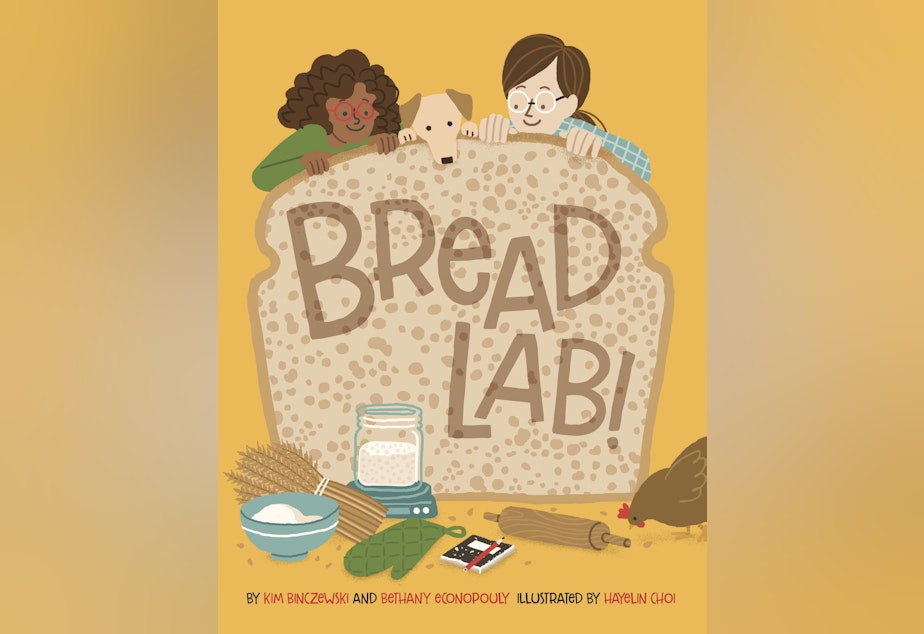Reading, writing, and… eating? Kids learn through food, too

Kids going back to school this month are learning the basics: reading, writing, and arithmetic.
But one local publisher wants to add another category to that list. Food, publisher Philip Lee says, is also an important vehicle for learning.
Lee didn’t set out to publish books about food. He wanted to release books that would help close the achievement gap for children of color. But when he talked to educators about what they needed to close that achievement gap, their answer surprised him.
Educators told Lee the kids didn't have a learning problem; they weren't getting enough to eat.
When kids were hungry, it affected their ability to learn.
“It was a real awakening for me," Lee said.
That was nearly 10 years ago, at the start of the national 'food movement': Michael Pollan’s book, The Omnivore’s Dilemma was on the bestseller list and First Lady Michelle Obama had launched the White House garden.
Lee was discovering that food—in addition to being a critical component for learning—also served as an important way for kids to learn about different cultures and science.
“There’s so much interest in food, there’s all this new knowledge and activism in food, yet not much in education,” Lee said. “Coming from a children’s book publisher, I felt that was the missing link.”
To help make the connection, Lee and his wife, a food anthropologist, launched a publishing company called Readers to Eaters.
Lee said the books aren’t meant to tell kids what to eat, but to help them understand where their food comes from. Another goal, he says, is to build literacy through food.
“We eat multiple times a day,” he explained. “Let’s start getting kids and families to read together on subjects they’re already familiar with.”
Last year, Readers to Eaters published books that explored food culture. One book was called Chef Roy Choi’s Street Food Remix.
The book is about Roy Choi, a fine dining chef in LA who was the first to sell food from food trucks before they became popular. He was also the first to use Twitter to let customers know where to find him. Lee said Choi’s food was groundbreaking in another sense, too; it reflected his years growing up in LA’s Koreatown.
“That blending of Korean barbecue and Mexican taco, it’s a reflection of New American cuisine, but it’s also a reflection of the new America," Lee said. "And that ultimately is the immigrant story that we’re trying to tell, not just a food story.”
Readers to Eater’s latest publication is a book on grains.
Kim Binczewski is managing director at a Washington State University research program called the Bread Lab in Skagit County. Together with Bethany Econopouly, then a Ph.D student, they wrote a book called Bread Lab!
“It’s about a 10-year-old girl named Iris who spends the day with her aunt who’s a plant scientist,” said Binczewski.
The aunt brings a sourdough starter, and she and Iris spend the day together baking bread. While the dough rests, Iris gets more than a lesson in baking.
“They talk about farming and microbes and science, and how Aunt Mary became a plant scientist," Binczewski explained.
Binczewski said the authors wanted to use the book to introduce girls to science. And at the end of the book, there’s a recipe for sourdough bread.
Looking ahead, readers can expect new titles that explore our food system, from pollinators to the Black Panther’s breakfast program.
“When we started Readers to Eaters, people questioned us: Isn’t that very limiting to focus on food?" Lee said. "But for us, everything relates to food. We’re not just talking about health and nutrition, but about immigration, about science.”
And as food culture in America continues to change, said Lee, there are always new ways to add to these stories.
Correction: Previous version incorrectly placed Bread Lab in Whatcom County.




